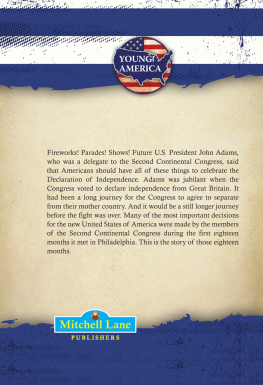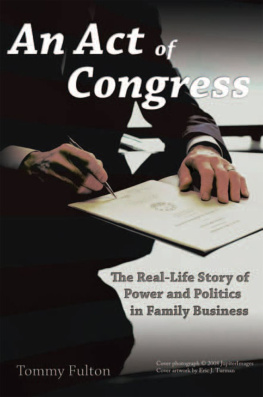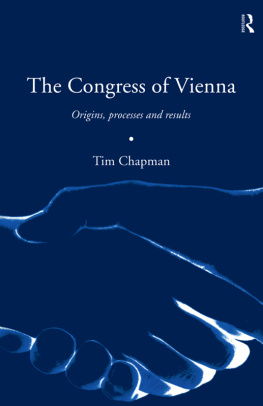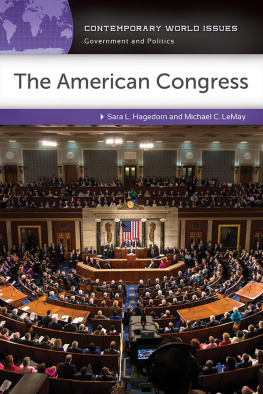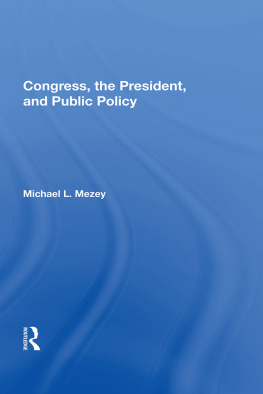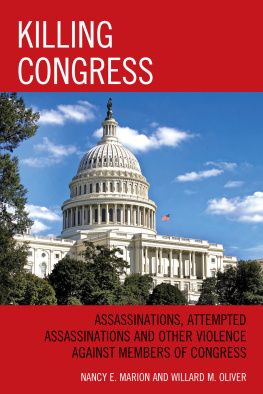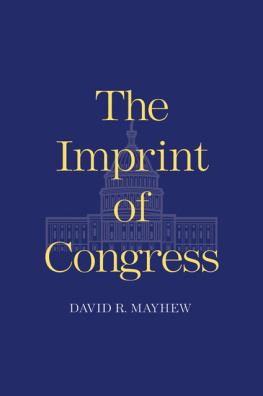William T. Bianco - Congress on Display, Congress at Work
Here you can read online William T. Bianco - Congress on Display, Congress at Work full text of the book (entire story) in english for free. Download pdf and epub, get meaning, cover and reviews about this ebook. publisher: University of Michigan Press, genre: Politics. Description of the work, (preface) as well as reviews are available. Best literature library LitArk.com created for fans of good reading and offers a wide selection of genres:
Romance novel
Science fiction
Adventure
Detective
Science
History
Home and family
Prose
Art
Politics
Computer
Non-fiction
Religion
Business
Children
Humor
Choose a favorite category and find really read worthwhile books. Enjoy immersion in the world of imagination, feel the emotions of the characters or learn something new for yourself, make an fascinating discovery.

- Book:Congress on Display, Congress at Work
- Author:
- Publisher:University of Michigan Press
- Genre:
- Rating:5 / 5
- Favourites:Add to favourites
- Your mark:
- 100
- 1
- 2
- 3
- 4
- 5
Congress on Display, Congress at Work: summary, description and annotation
We offer to read an annotation, description, summary or preface (depends on what the author of the book "Congress on Display, Congress at Work" wrote himself). If you haven't found the necessary information about the book — write in the comments, we will try to find it.
Congress on Display, Congress at Work — read online for free the complete book (whole text) full work
Below is the text of the book, divided by pages. System saving the place of the last page read, allows you to conveniently read the book "Congress on Display, Congress at Work" online for free, without having to search again every time where you left off. Put a bookmark, and you can go to the page where you finished reading at any time.
Font size:
Interval:
Bookmark:
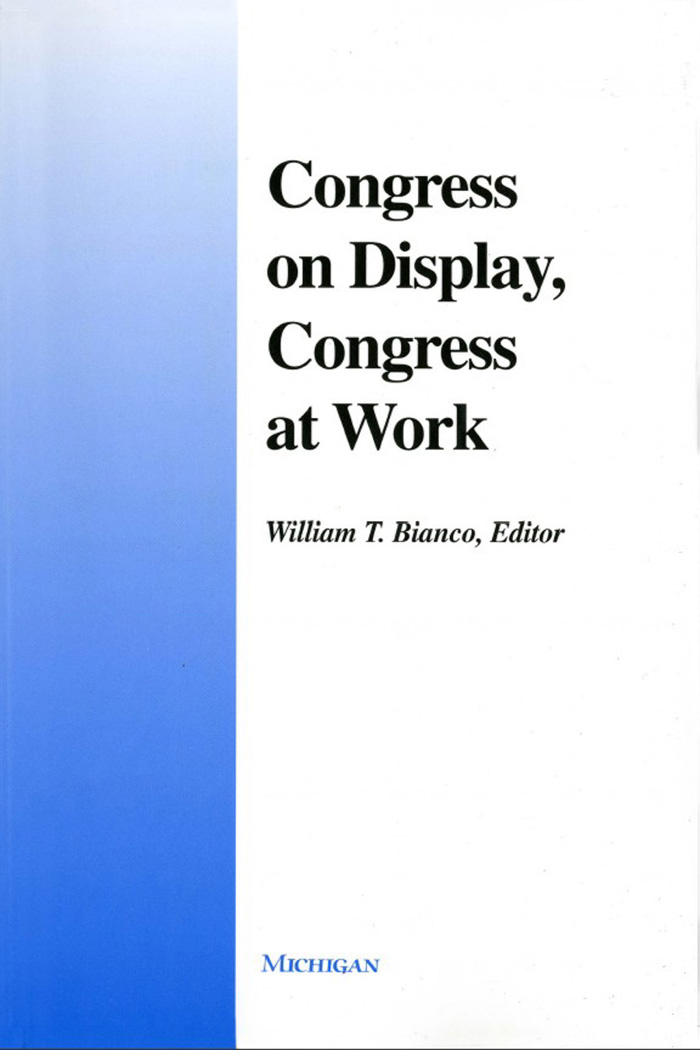
Congress on Display, Congress at Work
Congress at Work
Edited by
W ILLIAM T. B IANCO
Ann Arbor
T HE U NIVERSITY OF M ICHIGAN P RESS
Copyright by the University of Michigan 2000
All rights reserved
Published in the United States of America by
The University of Michigan Press
Manufactured in the United States of America Printed on acid-free paper
Printed on acid-free paper
2003 2002 2001 2000 4 3 2 1
No part of this publication may be reproduced, stored in a retrieval system, or transmitted in any form or by any means, electronic, mechanical, or otherwise, without the written permission of the author.
A CIP catalog record for this book is available from the British Library.
Library of Congress Cataloging-in-Publication Data
Congress on display, Congress at work / edited by William T. Bianco.
p. cm.
Includes bibliographical references and index.
ISBN 0-472-11118-3 (cloth : alk. paper) ISBN 0-472-08711-8 (pbk. : alk. paper)
1. United States. Congress. I. Bianco, William T., 1960
JK1021 .C557 2000 | |
328.73dc21 | 00-033802 |
ISBN13 978-0-472-11118-3 (cloth)
ISBN13 978-0-472-08711-2 (paper)
ISBN13 978-0-472-02690-6 (electronic)
For Dick Fenno,
who taught us all
William T. Bianco
John H. Aldrich and Kenneth A. Shepsle
Wendy J. Schiller
Bryan W. Marshall, Brandon C. Prins, and David W. Rohde
Richard Forgette
Christine DeGregorio
Barbara Sinclair
Steven J. Balla and John R. Wright
Linda L. Fowler and Brian Frederking
William T. Bianco
David Castle and Patrick J. Fett
Diana Evans
Patrick J. Fett, Jeffrey S. Hill, and Richard Delaney
This book is the product of a conference held at the University of Rochester in October 1997 in honor of Richard F. Fennos 40th anniversary as a university professor. It honors a man whose contributions to legislative studies, to political science, to the Rochester political science department, and to his students are so large as to defy superlatives.
The essays in this book span the field of legislative studies, ranging from Aldrich and Shepsles theory of legislative institutions to Castle and Fetts analysis of party switching by southern politicians to Balla and Wrights work on congressional control over the bureaucracy. All of them have their roots somewhere in Dick Fennos research program. His characterization of legislators as rational actors, his expectation that congressional rules, procedures, and institutions reflect the preferences and constraints faced by members of Congress, and his insistence on seeing politics as politicians do are a constant throughout this volume.
As with any edited work, this one owes its fruition to the efforts of many individuals and institutions. Many thanks are owed to the Department of Political Science at the University of Rochester, especially Pamm Ferguson, Bruce Jacobs, and Harold Stanley for their work in organizing the conference, and to the University of Rochester for providing the necessary funding.
As for myself, Id like to thank the more senior Rochester graduates for cheerfully deferring to my judgments about this volumes format, content, and deadlines. Chuck Myers of the University of Michigan Press also deserves thanks for finding this book a home. James Honaker provided able research assistance. And Regina Smyth supplied her usual and much-appreciated sage advice and wise counsel.
My final acknowledgment is to Dick Fenno. His career is a demonstration of the qualities that define a first-rate scholar: focus, persistence, insight, and grace. After an amazing 40-year run, with awards and accomplishments enough for an entire subfield, he remains hard at work, soaking and poking away. He is an academics academic.
As a final demonstration of the position that Dick holds in all of our hearts, I defer to another scholar, Chuck Jones. During my first year as a graduate student at Rochester, Jones gave the Cutler Lecture. Before beginning his discussion of the Carter presidency, Jones explained to the nonacademics in the audience what a top-notch political science department they had at Rochester. When he got to Dick Fenno, he offered an analogy. The way congressional scholars see it, he said, Dick Fenno sits at the right hand of God. In fact, he continued, when students of Congress die and go to heaven, which is their reward for trying to make sense of the legislative process, theyll walk through the gates, look up at the dais, and ask, Whos that guy sitting next to Dick Fenno?
Jones was entirely right. Dick Fenno has changed the way that we think about Congress and how we think Congress should be studied. For these accomplishments, and for all the other lessons he has taught us along the way, this book is gratefully dedicated to him.
In this essay I examine how Richard Fennos seminal works, Congressmen in Committees and Home Style, underlie and motivate studies of the legislative process. To paraphrase Home Style, my goal is to describe these works as they are seen through the eyes of legislative scholars. Along the way, I will show how the chapters in this book fit into this literature, both in their citations of Fennos work and in their attempts to extend Fennos insights, hypotheses, and findings.
At one level, gauging Dick Fennos influence on legislative scholarship is easy: it is all pervasive. It is hard to imagine a graduate reading list in American politics or legislative studies that does not include most of Fennos publications. A look at citation indexes reinforces this image. Stewart (1998) finds that Home Style and Congressmen in Committees were, respectively, the second and third most cited works in articles on congressional politics published between 1991 and 1997 in the American Political Science Review, American Journal of Political Science, and Legislative Studies Quarterly.
Fennos work has also profoundly influenced how scholars teach courses on Congress and the legislative process. I suspect that virtually every course has a lecture on the relationship between member goals and strategic premises, as described in Congressmen in Committees, or works through Home Styles litany of allocation of resources, presentation of self, and explanations of Washington activity. Long after they were written, Fennos books remain popular choices for undergraduate courses. In fact, Maisels (1984) review of texts for legislative politics courses noted that anyone who wanted his or her new texts to be widely adopted would be wise to change their name to Fenno (1). All in all, these results suggest that congressional scholars would not go too far wrong if they simply followed the lead of Austen-Smith and Wright (1994) and listed one or more of Fennos books in their reference section, even if they do not actually cite the works in the main text.
The goal in this essay is to identify elements of Fennos research that have become conventional wisdom or stylized fact in the field of legislative studies. The data consist of a citation search on Journal Storage (JSTOR) to capture all mentions of
Font size:
Interval:
Bookmark:
Similar books «Congress on Display, Congress at Work»
Look at similar books to Congress on Display, Congress at Work. We have selected literature similar in name and meaning in the hope of providing readers with more options to find new, interesting, not yet read works.
Discussion, reviews of the book Congress on Display, Congress at Work and just readers' own opinions. Leave your comments, write what you think about the work, its meaning or the main characters. Specify what exactly you liked and what you didn't like, and why you think so.


